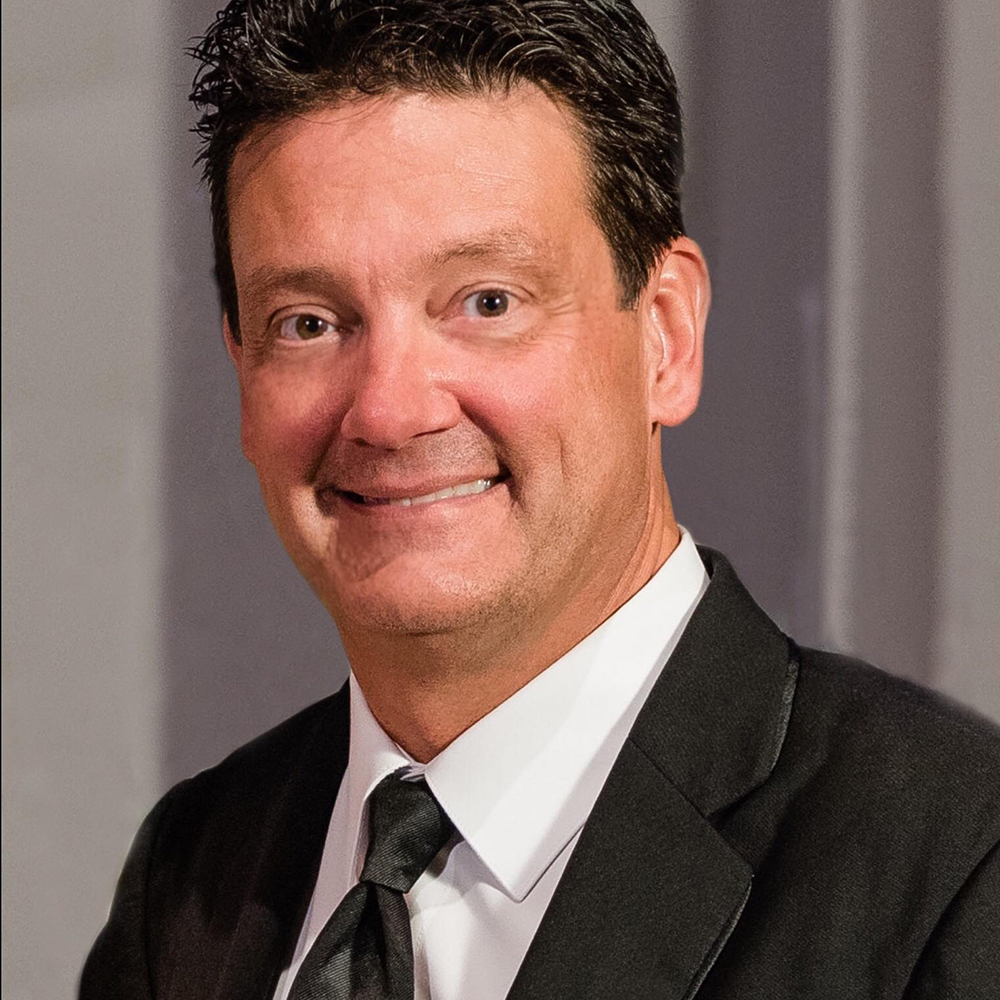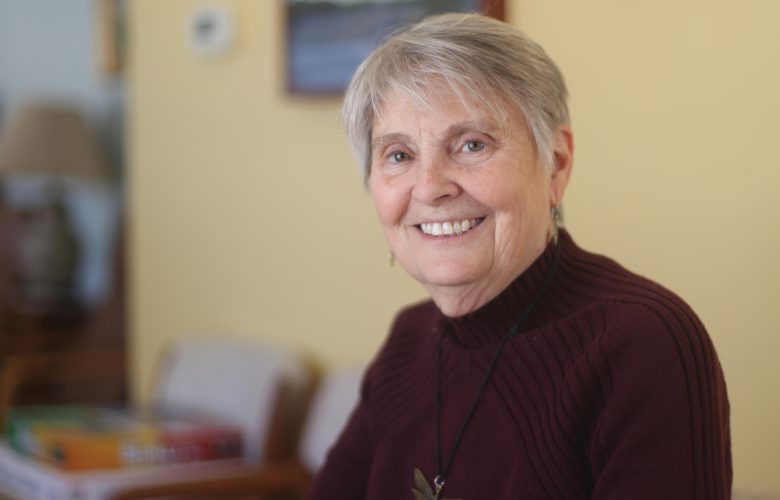By sharing one person’s story at a time
By Richard A. Coates
Current Contributor
Gymnast Simone Biles withdrew from the team portion of Olympic competition on July 27, stating that she was not in the right place mentally to compete. American football quarterback Aaron Rodgers earlier this year stated that he was going to take time to work on his mental health. Naomi Osaka dropped out of Wimbledon stating mental health issues.
Robin Williams, Kate Spade, and Anthony Bourdain seemed to have it all—fame and wealth and so much respect and love in their respective professions. Yet all three committed suicide.
This past year, three people I knew in Northern Michigan took their own lives. All three seemed to have everything: wonderful families, successful businesses/careers. But they all struggled with mental health challenges.
For a long time, I have felt that mental health is the biggest elephant in the room. It has such a stigma that, as a society, we have not done enough to correct this and to make it acceptable for those battling mental health challenges to be able to come forward—without judgment—to seek help.
If you have cancer, need a new liver, or have some other physical medical condition, our society is quick to come to your aid with a GoFundMe page or some type of fundraiser—when was the last time you attended a fundraiser for someone battling a mental health issue?
I have spent a lot of time reflecting on my own mental health recently.
The reality is that my mental health is not in a good place. I have decided to come out of the closet and share that I have been battling debilitating anxiety, panic attacks, and agoraphobia for more than 40 years.
I have been serving essentially a life sentence in the mental illness penitentiary.
I wake up every morning fearful of what tricks my mind will play on me today. I have expended a tremendous amount of energy to hide this from pretty much everyone in my life. But I am exhausted and mentally drained from hiding what I consider to be an embarrassing weakness; exhausted of what people would think of me, if they only knew the mental challenges that I face every day.
I wake up every morning wondering if I will know whether I am having a panic attack or actually a stroke or heart attack. I wake up every morning unable to look at myself in the mirror, because I am ashamed. I battle so many irrational fears daily.
As mentioned above, over the past few months, three high profile athletes have come forward on the state of their mental health. Quarterback Aaron Rodgers said, after the last football season, that he was going to work on his mental health. While he said he was not depressed, he said that he needed to de-clutter his mind and needed to focus on his mental health. Naomi Osaka, the number-two female tennis player in the world, withdrew from the French Open and said she would not compete at Wimbledon, citing she was dealing with anxiety and depression and needed to focus on her mental health. Then at the end of July, Simone Biles—easily the most famous Olympian in Tokyo and maybe the greatest gymnast ever—walked away from the competition, stating she was not mentally in a place to compete.
As also mentioned above, Robin Williams, Kate Spade, and Anthony Bourdain were all loved by their fans. Kate was a billionaire and seemed to have it all together, and who didn’t love Robin? Anthony was loved, admired, and respected. But despite their fame and fortune, they were not immune to mental illness.
Nor were Marilyn Monroe, Kurt Cobain, Ernest Hemingway, Hunter S. Thompson, Chester Bennington, Vincent Van Gogh, Chris Cornell, Michael Hutchence, Freddie Prince, Keith Emerson, Don Cornelius, Brad Delp, Del Shannon, Dick Trickle, Butch Trucks, Cliff Davies, Bob Welch, Richard Manuel, Ronnie Montrose, and Vince Welnick (see my note below on Ronnie and Vince). While all were famous and appeared to be successful by societal standards, none of them were immune to the demons of mental illness, and all took their own lives.
We all know people who have battled mental illness and even those that the mental pains of life caused them to end their own lives.
Last year, I had three people whom I knew from Northern Michigan that took their own lives. One I met with the day before he took his own life. I had known him for 30 years and never knew the mental demons he was battling. Nor did he ever know mine.
Backing up, my previous life as a music journalist has led me to cross paths with both Ronnie Montrose and Vince Welnick. I have always considered Ronnie Montrose one of the greatest rock guitarists of all time. Just before I was to interview him, I was interviewing Pete Townshend of The Who, and I asked him about guitarists he admired, specifically American guitarists. He responded: “Joe Walsh and, hands down, Ronnie Montrose is at the top of that list.” I had the good fortune of sharing what Pete had said to Ronnie. He was blown away and said that meant the world to him; that he had never met Pete Townshend and was shocked that Pete was a fan of his guitar work. Two days later, Ronnie took his own life. Nothing in our interview gave me any inclination that Ronnie Montrose was battling mental illness or depression.
Six years earlier, I was with Vince Welnick, keyboardist with The Tubes; also the last keyboardist for the Grateful Dead, before Jerry Garcia died. Vince and I spoke about a lot of things that day. I asked him if he was worried about the “curse of The Grateful Dead keyboardist,” as it was known, since the three previous keyboardists had died. Vince chuckled and laughed saying, “I am going to live forever.” He took his life three days later.
I share these stories because mental illness is invisible.
Most of us who suffer with it go to great lengths to hide it. We are too ashamed to share it with anyone. Primarily because movies, the media, and society in general have defined mental illness as Hannibal Lector meets Jeffrey Dahmer. But those of us who suffer from mental challenges know that we have nothing in common with those depictions.
Biles, Osaka, and even Rodgers have been lambasted by some in the media and thousands on social media for their actions and behavior—but my opinion is that those three are saving lots of lives. They are saying to millions of people that are suffering from mental illness: “It is okay, and you are not alone.” They are saying: ”It is okay to take time for yourself and to work on your mental health.
No one will know if Osaka might have won the French Open or Wimbledon. Or if Biles would have won several gold medals this year. Or if Rodgers would have retired from the NFL. Each one of them has said that their mental health was more important than anything else. Rodgers has empathized with Biles, and Green Bay fans should be grateful that Rodgers committed his offseason to focusing on his mental health. As for Biles “letting her team down,” as some have implied, her actions have been quite to the contrary—shame on anyone who attacked this young woman, a person who bounced around foster care early in life and was molested several times by her doctor, Larry Nasser. She could have easily packed her bags and headed home. But instead, she stayed and served as a cheerleader and supporter of her teammates in Japan.
For most of you, life might be quote-unquote “easy.” For those of us who battle mental health issues, however, that is not the case.
Earlier this afternoon, I received a call from the wife of a friend of mine. He took his life last night. He left a note, and when she read it to me crying, I could not stop crying while listening to his last words. He had what we would say is “everything” by world standards. But he hid his mental illness and depression from everyone, including his wife, family, and friends.
So, after spending a lot of time in reflection today, I am saying enough is enough.
I never asked for this. I wake up every morning with one dream and one wish: to feel normal.
That is my goal moving forward for myself and what I plan to work toward for millions of others battling mental challenges. We cannot walk in someone else’s shoes, but we can help them to walk better in their own shoes, so let’s start doing that today!
After writing this piece and publishing it on his personal Facebook page earlier this summer, Richard A. Coates is taking a leadership role with National Alliance On Mental Illness (NAMI)—a United States-based advocacy group originally founded as a grassroots group by family members of people diagnosed with mental illness—helping to facilitate their fundraising walk. NAMI Walks will take place on Saturday, September 25, at The Village at Grand Traverse Commons. Check out Coates’ fundraising page at https://bit.ly/RCoatesNAMI online.
Featured Photo Caption: Richard A. Coates has battled the challenges of mental illness going back to middle school. “I have spent my entire life using every ounce of energy to hide it from family, friends, and colleagues. I felt ashamed, embarrassed, angry, and depressed. I wake up every morning hoping today is the day I am finally going to feel normal.” Over the past 10 months, Coates has lost eight people who chose to end their lives, and he says that he never once saw any indication that they were struggling. “Like me they used every ounce of energy to hide it.” Coates is now using his voice to speak out and bring attention to mental health issues. Photo courtesy of the Coates family.





Hiding behind a story of fear/shame/guilt/failure, etc. A shock to those who never were given a clue. Thank you for bringing to light. Now to find a way for people to give some hints of the inner
Sadness so hard to share in this, HAVE A GREAT DAY day.